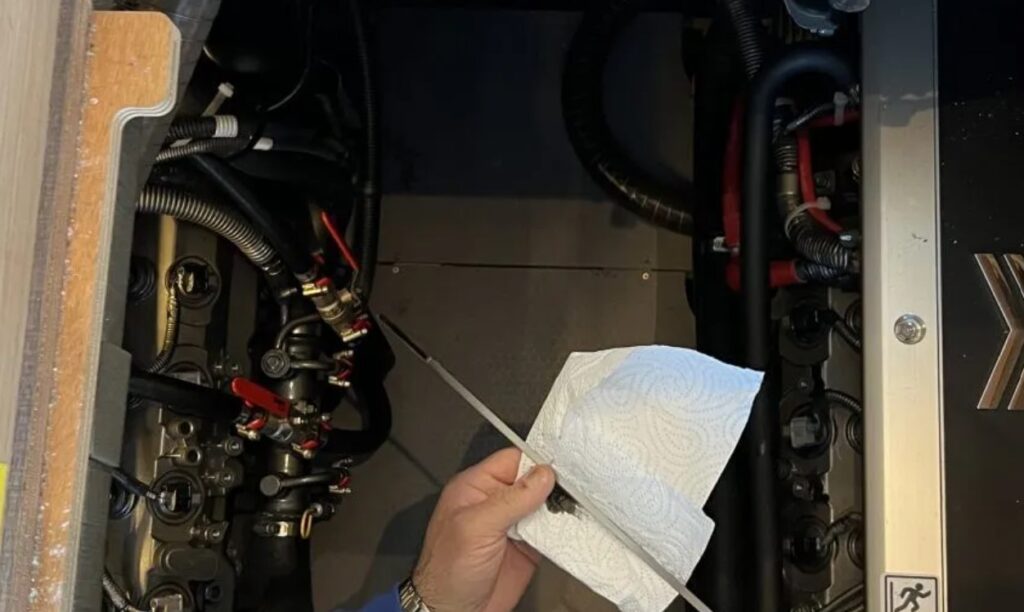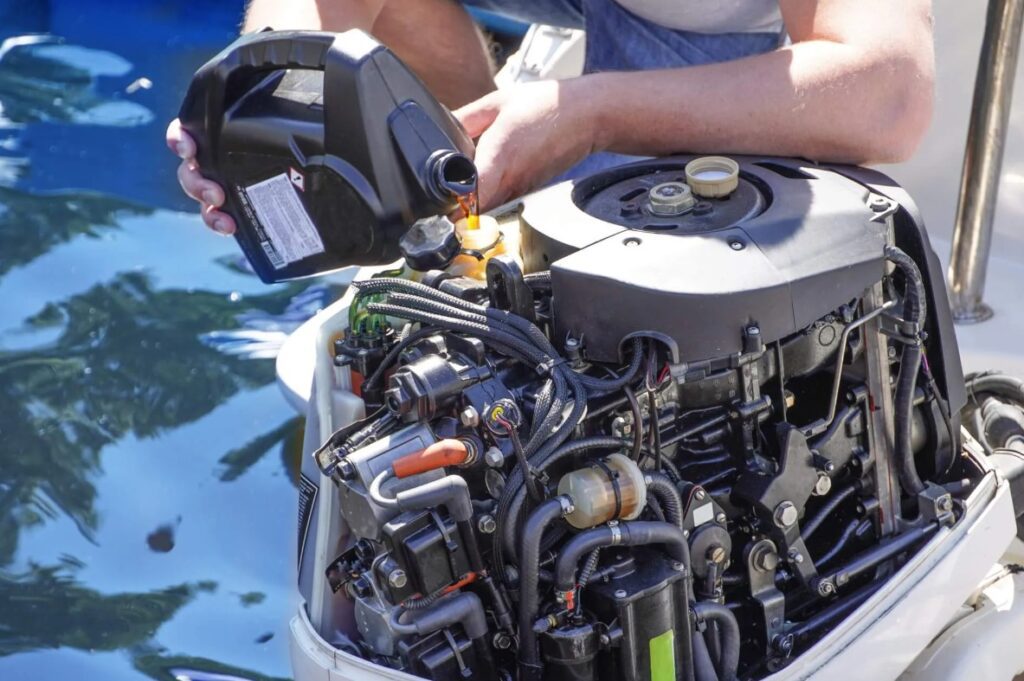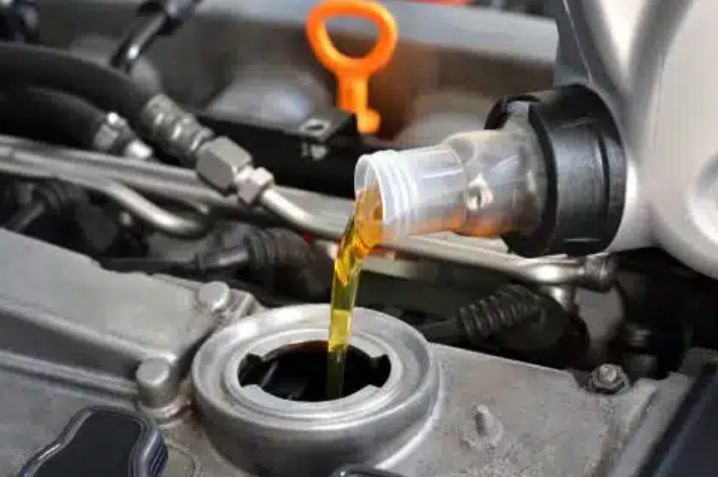How Often Should You Check The Engine Oil Level Boat?
Maintaining the optimal performance of your boat’s engine is crucial, and How Often Should You Check The Engine Oil Level Boat? is a vital question for every boat owner. Regular checks of the engine oil level are essential for ensuring the longevity and efficiency of your boat’s engine. This article will guide you through the necessary steps and considerations, providing you with expert advice on maintaining your boat’s engine oil level.
Key Takeaways
- Regular engine oil level checks are essential for boat maintenance.
- The frequency of checks varies depending on usage, boat type, and engine model.
- Understanding the correct oil level and identifying potential issues is crucial.
How Often Should You Check The Engine Oil Level Boat?
You should check the engine oil level in your boat before every outing if it’s used frequently, or at least once a month for less frequent usage. Always refer to the boat manufacturer’s guidelines for specific recommendations.

The Importance of Regular Engine Oil Checks in Boats
The Role of Engine Oil in Boat Performance
Engine oil plays a pivotal role in maintaining the health of your boat’s engine. It lubricates moving parts, reduces friction, and helps in cooling the engine. Regularly checking the oil level ensures your boat operates efficiently and prevents costly repairs.
Identifying Signs of Low Engine Oil
Recognizing signs of low engine oil is crucial. Warning signals include a burning oil smell, engine overheating, and unusual noises from the engine. Timely identification of these symptoms can prevent severe damage.
Factors Affecting Frequency of Oil Level Checks
Type of Boat and Engine Usage
The frequency of oil level checks largely depends on the type of boat and how often it’s used. High-performance boats or those used frequently may require more regular checks.
Environmental Conditions and Impact on Oil Level
Boating in harsh environments, like saltwater or extreme temperatures, can affect engine oil levels. Regular checks in these conditions are vital to ensure proper engine function.
How to Check the Engine Oil Level in a Boat?

Step-by-Step Guide
Checking the engine oil level in a boat involves a few simple steps. Ensure the boat is on a level surface, locate the dipstick, wipe it clean, reinsert it, and then check the oil level against the markings.
Understanding the Correct Oil Level
The oil should be between the minimum and maximum marks on the dipstick. Too little or too much oil can be harmful to your engine. Knowing the right level is key to engine maintenance.
Preventive Maintenance and Oil Level Checks
Regular Maintenance Schedule
Establishing a regular maintenance schedule for your boat, including oil level checks, is crucial. This schedule should be based on manufacturer recommendations and your specific boating habits.
The Role of Professional Inspections
While DIY checks are important, professional inspections are also recommended. They can identify issues that might be missed during a personal inspection.
Troubleshooting Common Oil Level Issues
Addressing Low Oil Levels
If you notice a low oil level, it’s important to refill it to the appropriate level. However, consistently low levels might indicate a leak or other issues that need professional attention.
Dealing with Excess Oil
Excess oil can be as harmful as low oil. If you find the oil level consistently high, it might be a sign of fuel dilution or other serious problems.
Importance Of Checking Your Boat’s Engine Oil
Regularly checking your boat’s engine oil is crucial for maintaining its health and efficiency. The engine oil lubricates moving parts, minimizes friction, helps in dissipating heat, and prevents the accumulation of harmful substances inside the engine.

Consistent oil level checks ensure the engine operates smoothly, enhances fuel efficiency, and extends the engine’s lifespan.
Neglecting this simple maintenance task can lead to increased wear and tear, overheating, and ultimately, engine failure. Additionally, regular oil checks can help identify leaks or other issues early on, preventing more significant problems down the line.
What Will Happen If I Don’t Check My Engine Oil Level?
Failing to check the engine oil level in your boat can lead to several serious issues. Low oil levels can cause the engine parts to wear down faster due to increased friction, leading to overheating and potentially causing the engine to seize.

Over time, this neglect can result in decreased engine performance, higher fuel consumption, and increased emissions. In extreme cases, it can lead to catastrophic engine failure, requiring costly repairs or even a complete engine replacement.
Moreover, regular oil checks can also alert you to other engine problems, such as oil leaks or contamination, which can be addressed before they escalate.
Which Type Of Boat Engine Oil Should You Use?
The type of engine oil you should use in your boat depends on various factors, including the type of engine (two-stroke or four-stroke), the engine’s age, operating conditions, and the manufacturer’s recommendations.
Generally, marine engine oils are specifically formulated to handle the marine environment’s unique challenges, such as high humidity and saltwater exposure. Four-stroke engines typically use heavier, detergent-based oils, while two-stroke engines require lighter, non-detergent oils mixed with fuel.
Always refer to your boat’s manual for the manufacturer’s recommended oil type and viscosity. Using the wrong type of oil can lead to reduced performance, increased wear and tear, and potential engine damage.
Conclusion
Regularly checking the engine oil level in your boat is an essential part of maintenance. It ensures your boat performs efficiently and prevents long-term damage. Remember to check the oil level according to your boat’s usage and the environmental conditions, and always keep an eye out for signs of oil level issues. Proper maintenance and timely checks can significantly extend the life of your boat’s engine.
Frequently Asked Questions
Can overfilling the engine oil be harmful?
Yes, overfilling the engine oil can lead to increased pressure, oil foaming, and potential damage to the engine. Always ensure the oil level is within the recommended range.
Should I check the engine oil when the engine is hot or cold?
It’s generally recommended to check the engine oil level when the engine is cold. This gives the oil time to settle and provides a more accurate reading.
How does the marine environment affect engine oil levels?
Harsh marine environments, especially saltwater, can accelerate oil degradation and consumption. This makes regular checks and potential adjustments more critical.
Is it necessary to change the engine oil at regular intervals?
Yes, changing the engine oil at intervals recommended by the manufacturer is essential. Over time, oil degrades and loses its effectiveness, necessitating a change to maintain engine health.

Welcome to the exhilarating world of Matt Rex, a professional car racer turned renowned vehicle enthusiast. Immerse yourself in his captivating blog as he shares heart-pounding adventures, expert reviews, and valuable insights on cars, trucks, jets, and more. Fuel your passion for speed and discover the beauty of vehicles through Matt’s engaging stories and meticulous expertise. Join the ever-growing community of enthusiasts who find inspiration and expert advice in Matt Rex’s blog—a digital hub where the thrill of speed meets the pursuit of knowledge.







